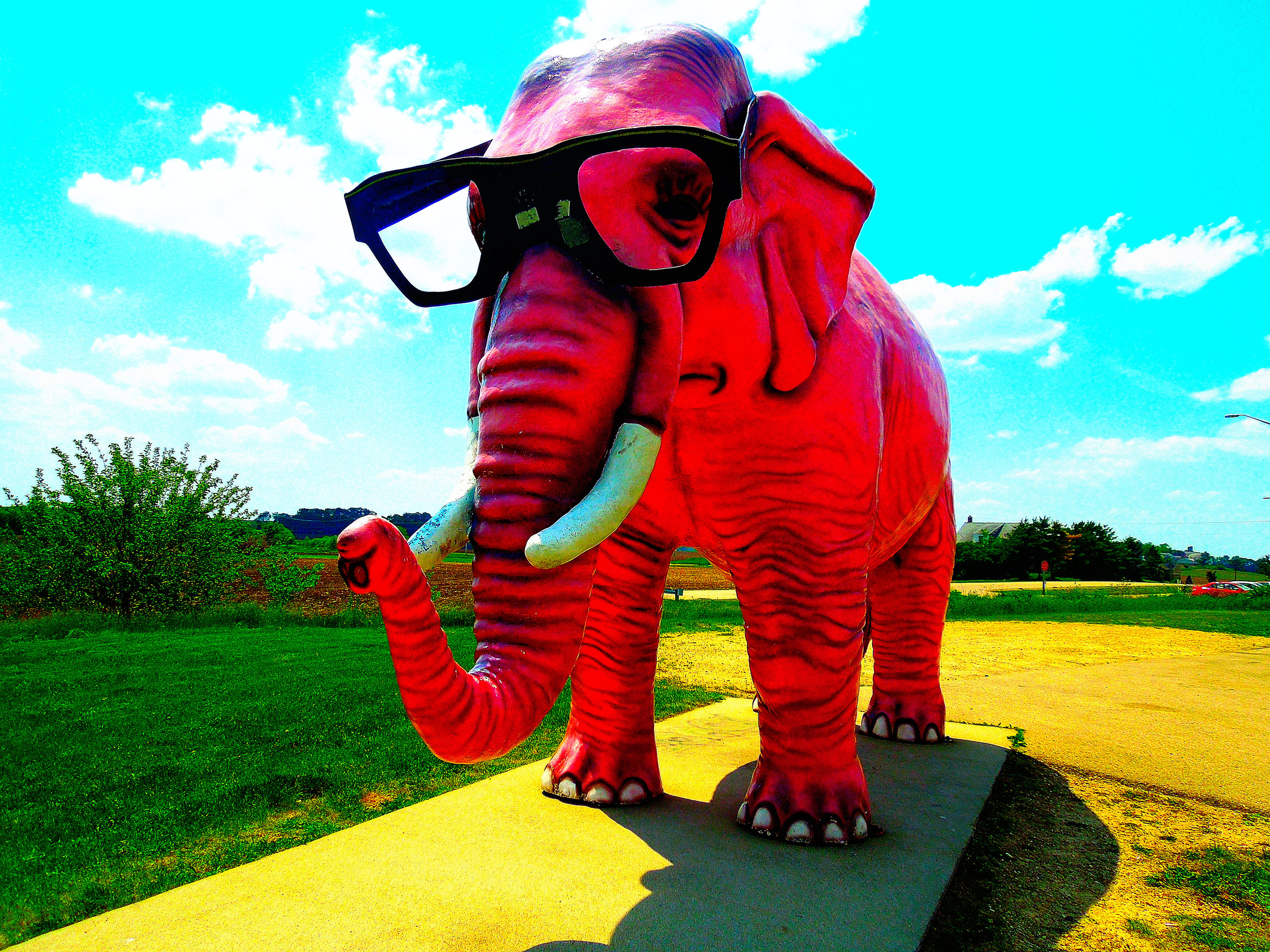On Christians & Pink Elephants
Photo: Wikimedia Commons
Before elephants, zombies…
At a seminar on zombies (yes, I am still on the promotional path for the Redeeming Flesh) at the University of Queensland, I made a mention of Catherine Pickstock’s analysis of the metaphysics of “necrophilia”.
No, not that kind of necrophilia!
In my book, the kind of necrophilia I spoke about was the kind that has to do with what the zombie lives out but in a tragic way: immortality. Pickstock entered this equation because she best explained the tragedy of the desire for immortality playing out on this side of the zombie apocalypse.
Immortality, Pickstock said in her After Writing, was the result of sequestering death from a sterile zone of “life”. With this sequestering came also a constant vigilance against the signs of ageing. As a result, a whole culture became an enlarged jar of skin cream.
Expanding from this point, I made the remark that our culture assures a secular form of immortality by setting an array of means by which we say to ourselves “do not die”.
The problem is that this kind of vigilance against death is a metaphysical version of “don’t think of the pink elephant”. The moment someone tells you not to do this, empty space of your mind immediately fills up with some rose tinged Dumbo-or-Nelly-the-Elephant-esque figure.
That which we constantly watch against as the negation of our substance, will eventually take on a substance of its own, and we become increasingly drawn towards it. That pink elephant we were supposed to avoid thinking – and it must be remembered that a pink elephant was a euphemism for a drug-induced hallucination – becomes the centre of our attention.
The personalist philosopher Emmanuel Mounier hints at an explanation when, in his book Personalism, he links our identity with the German term Zusein, which means “being to”. As persons, our being is one of constantly being drawn towards things in front of us, rather than being driven away from things behind us.
The same can be said of the Christian life. While it seems pretty obvious that we are called to be followers of Christ, we are very often framing that discipleship in terms of resisting that which is not of Christ. This is all well and good, but may become a problem if we do not balance our understanding of resistance against things that lead us from Christ with an equally robust understanding on what fidelity to Christ looks like. This intuition was encapsulated by a comment from a friend that Christians seem to know the Seven Deadly Sins better than they know either the 7 Virtues or the 14 Works of Mercy.
If the metaphysics of the pink elephant holds, it means that a faith obsessed with avoiding sin would start to define faith in terms that make sin the ground of all reality, rather than the Logos through whom all things were made (as we profess in the creeds). Faith becomes a barrier we put up around ourselves, and we would start to define the living out of our faith by our resistance to things or even people that are deemed to be beyond the wall.
When we do so, Mounier suggests, we put ourselves on the path to ignorance, of ourselves, of the world, and of God.
By contrast, the life of virtue and the works of mercy – that which does orient us towards a life in and with Christ – when they become the ground of reality, always orients us towards communion with others. Life in Christ is a life of constant deconstruction of the walls and borders we put up and make the indispensable hallmarks of our identity. A life in Christ is oriented towards the other as another self, because they are also the mirror of Christ.
In the words of Paul’s letter to the Colossians “when Christ is revealed – and He is your life – you too will be revealed with him in glory” (Col 3:17). The knowledge of reality in Christ far exceeds the hallucinogen of sin, which should cause one to ask why we, including we who number ourselves among the devout, centre our lives around hallucinations in thought, word and deed.
Support Awkward Asian Theologian on Patreon, and help make a change to the theological web.




